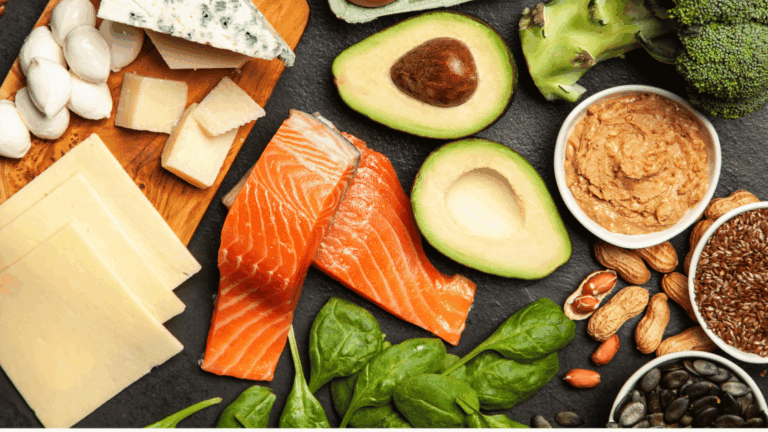
Thinking About the Ketogenic Diet to Lose Weight?
A message from our nutritionist, Ilaria Carandente
More and more people are turning to the ketogenic diet (or keto diet) because it promises fast weight loss. But before starting this type of diet, it’s important to understand what it actually involves—and what risks it may carry.
What is the Ketogenic Diet?
The ketogenic diet is very high in fat (70–80% of total calories) and extremely low in carbohydrates. The idea is to push your body into a state called ketosis, where it burns fat (and substances called ketones) for energy instead of sugar (glucose) from carbs.
This means the diet mainly includes:
- Fatty meats
- Cheese
- Cream, butter, and animal fats
- Vegetable oils
- Nuts and seeds
- Eggs
- Fish
- Tofu
And excludes almost all carbs, including:
- Bread, pasta, rice, cereals
- Fruit and starchy vegetables
- Legumes (beans, lentils, peas)
The goal? To force your body to burn fat for energy.
Why Do So Many People Choose It?
- It can lead to quick weight loss
- You get to eat rich, high-fat foods
- You avoid fruit and vegetables, which some people find less appealing
On the surface, this might sound ideal—but there’s a lot that isn’t being said.
Important Things You Might Not Hear About the Keto Diet
Many promoters of this diet (often with financial interests) don’t talk about the side effects or the long-term consequences. Here’s what you need to know:
1. Keto Flu
This is your body’s reaction to losing carbs. It can cause:
- Headache
- Fatigue
- Fast heartbeat
- Brain fog
- Bad breath
- Poor sleep
- Nausea
- Muscle cramps
2. Dehydration and Kidney Stress
In ketosis, your body loses a lot of fluids. Over time, this can lead to dehydration and kidney issues, especially if you’re not careful.
3. Heart Concerns
Fluid loss means losing key electrolytes (like sodium, potassium, and magnesium). If this continues, it can affect your heart rhythm.
4. Digestive Problems
The high fat intake can lead to:
- Diarrhea (from too much bile production)
- Constipation (from lack of fiber in fruits, vegetables, legumes, and whole grains)
5. Vitamin Deficiencies
Cutting out fruits, vegetables, and legumes can cause lack of essential vitamins and nutrients.
6. Mood Swings and Cravings
Low-carb diets may reduce serotonin, a brain chemical that helps regulate mood. This can lead to:
- Mood instability
- Emotional eating or food cravings
Is Ketosis Really Healthy?
It’s worth knowing that ketosis is a state that can occur naturally in serious illnesses. That’s why some experts have called the keto diet a “make-yourself-sick diet.”
Another concern is that the keto diet often includes large amounts of fatty meats and cheeses—foods linked to heart disease and chronic illness, the leading causes of death and disability today.
The Bottom Line: Why Health Professionals Are Cautious
While the keto diet may seem tempting, it is:
- Highly restrictive and imbalanced
- Difficult to stick with long term
- Physically and socially unsustainable for most people
- Potentially harmful to your health if not medically supervised
✅ A Better Alternative: A Balanced Diet
A balanced, varied diet:
- Supports all your body’s natural functions
- Helps you lose weight safely and gradually
- Doesn’t place your body under unnecessary stress
- Is easier to maintain long term
- Nourishes your body, rather than depriving it
Choosing a sustainable, healthy eating plan is not only better for your weight—it’s better for your whole life.
For personalized advice, talk to a registered nutritionist or dietitian. We’re here to help you find the best approach for your health and lifestyle.
By our nutritionist, Ilaria Carandente
